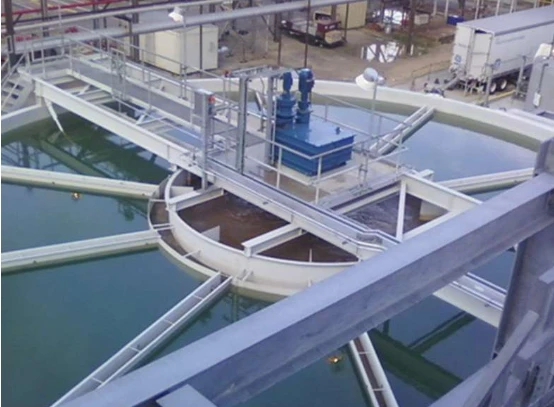
-
 Afrikaans
Afrikaans -
 Albanian
Albanian -
 Amharic
Amharic -
 Arabic
Arabic -
 Armenian
Armenian -
 Azerbaijani
Azerbaijani -
 Basque
Basque -
 Belarusian
Belarusian -
 Bengali
Bengali -
 Bosnian
Bosnian -
 Bulgarian
Bulgarian -
 Catalan
Catalan -
 Cebuano
Cebuano -
 China
China -
 China (Taiwan)
China (Taiwan) -
 Corsican
Corsican -
 Croatian
Croatian -
 Czech
Czech -
 Danish
Danish -
 Dutch
Dutch -
 English
English -
 Esperanto
Esperanto -
 Estonian
Estonian -
 Finnish
Finnish -
 French
French -
 Frisian
Frisian -
 Galician
Galician -
 Georgian
Georgian -
 German
German -
 Greek
Greek -
 Gujarati
Gujarati -
 Haitian Creole
Haitian Creole -
 hausa
hausa -
 hawaiian
hawaiian -
 Hebrew
Hebrew -
 Hindi
Hindi -
 Miao
Miao -
 Hungarian
Hungarian -
 Icelandic
Icelandic -
 igbo
igbo -
 Indonesian
Indonesian -
 irish
irish -
 Italian
Italian -
 Japanese
Japanese -
 Javanese
Javanese -
 Kannada
Kannada -
 kazakh
kazakh -
 Khmer
Khmer -
 Rwandese
Rwandese -
 Korean
Korean -
 Kurdish
Kurdish -
 Kyrgyz
Kyrgyz -
 Lao
Lao -
 Latin
Latin -
 Latvian
Latvian -
 Lithuanian
Lithuanian -
 Luxembourgish
Luxembourgish -
 Macedonian
Macedonian -
 Malgashi
Malgashi -
 Malay
Malay -
 Malayalam
Malayalam -
 Maltese
Maltese -
 Maori
Maori -
 Marathi
Marathi -
 Mongolian
Mongolian -
 Myanmar
Myanmar -
 Nepali
Nepali -
 Norwegian
Norwegian -
 Norwegian
Norwegian -
 Occitan
Occitan -
 Pashto
Pashto -
 Persian
Persian -
 Polish
Polish -
 Portuguese
Portuguese -
 Punjabi
Punjabi -
 Romanian
Romanian -
 Russian
Russian -
 Samoan
Samoan -
 Scottish Gaelic
Scottish Gaelic -
 Serbian
Serbian -
 Sesotho
Sesotho -
 Shona
Shona -
 Sindhi
Sindhi -
 Sinhala
Sinhala -
 Slovak
Slovak -
 Slovenian
Slovenian -
 Somali
Somali -
 Spanish
Spanish -
 Sundanese
Sundanese -
 Swahili
Swahili -
 Swedish
Swedish -
 Tagalog
Tagalog -
 Tajik
Tajik -
 Tamil
Tamil -
 Tatar
Tatar -
 Telugu
Telugu -
 Thai
Thai -
 Turkish
Turkish -
 Turkmen
Turkmen -
 Ukrainian
Ukrainian -
 Urdu
Urdu -
 Uighur
Uighur -
 Uzbek
Uzbek -
 Vietnamese
Vietnamese -
 Welsh
Welsh -
 Bantu
Bantu -
 Yiddish
Yiddish -
 Yoruba
Yoruba -
 Zulu
Zulu
frp spraying pipe
The Importance of FRP Spraying Pipe in Modern Applications
As industries continue to evolve, the demand for durable and efficient materials has never been higher. One such innovation that has gained significant attention in recent years is the Fiberglass Reinforced Plastic (FRP) spraying pipe. Known for its remarkable strength, corrosion resistance, and lightweight properties, FRP spraying pipes are revolutionizing various sectors, including construction, chemical processing, and wastewater management.
What is FRP?
Fiberglass Reinforced Plastic is a composite material made up of a polymer matrix combined with fiberglass fibers. The result is a highly durable material that is both strong and lightweight, making it an ideal choice for a variety of applications. The unique properties of FRP are largely attributed to the combination of glass fibers, which provide tensile strength, and the plastic resin, which offers flexibility and resistance to environmental factors.
Key Advantages of FRP Spraying Pipes
1. Corrosion Resistance One of the standout features of FRP is its exceptional resistance to corrosive substances. This makes FRP spraying pipes suitable for transporting aggressive chemicals, wastewater, and other materials that would typically degrade traditional piping systems. Industries such as chemical manufacturing and wastewater treatment benefit greatly from this property.
2. Low Weight FRP is significantly lighter than metal piping systems. This characteristic simplifies transportation, handling, and installation, reducing labor costs and time. The lightweight nature of FRP also allows for the design of large structures that would be impractical with heavier materials.
frp spraying pipe

3. High Strength-to-Weight Ratio Despite being lightweight, FRP materials possess high tensile strength, which allows them to withstand high pressures and stresses. This makes FRP spraying pipes not only suitable for pressure applications but also for structural components in various construction projects.
4. Flexibility in Design FRP can be manufactured in a variety of shapes and sizes, allowing for customized solutions tailored to specific project requirements. This versatility is increasingly important in modern construction and industrial applications, where unique and complex layouts are often required.
5. Cost-Effectiveness Although the initial cost of FRP can be higher than some conventional materials, the long-term savings that result from its durability and low maintenance requirements can significantly offset the initial investment. This is a crucial consideration for businesses looking to enhance operational efficiency.
Applications of FRP Spraying Pipes
FRP spraying pipes are utilized in a wide range of industries. In the chemical processing sector, they are often used for transporting acids and bases, where traditional materials may fail. In the construction industry, they can be found in drainage systems, roof gutters, and even structural components. Furthermore, FRP pipes are increasingly being adopted in water treatment facilities due to their ability to withstand harsh environments.
Conclusion
The role of FRP spraying pipes in modern applications cannot be overstated. With their outstanding integrity, corrosion resistance, and versatility, FRP pipes are paving the way for advancements across multiple sectors. As industries continue to seek materials that offer more durability and sustainability, FRP is positioned to play a crucial role in shaping the future of piping systems. Investing in FRP technology is not merely a trend; it is a strategic move towards achieving efficiency and resilience in an ever-changing industrial landscape.









